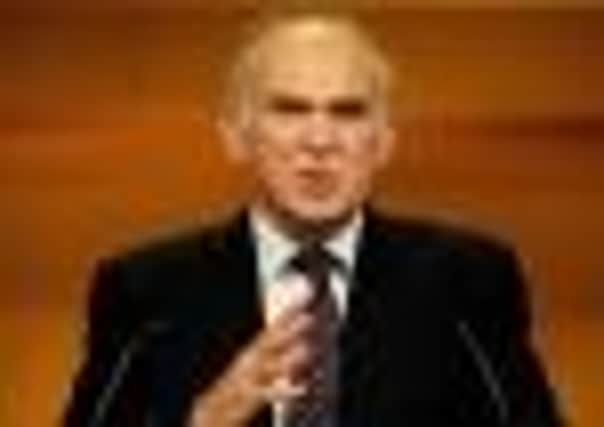Battle lines drawn on Vince Cable’s plans for boardroom pay vote


Starkly contrasting opinions were aired as the Business Secretary issued a consultation paper on his proposal that boards must achieve a “supermajority” of between 50 and 75 per cent for the pay policy to be approved.
John Cridland, the CBI employers’ group director-general, said that businesses felt binding shareholder votes were the wrong way to ensure that executive financial reward reflected performance.
Advertisement
Hide AdAdvertisement
Hide Ad“The consultation’s proposal for up to a 75 per cent shareholder vote approval threshold would be damaging, leaving decision making about company strategy in the hands of a minority of shareholders who may not represent the wider group,” Cridland said.
One FTSE 100 chairman described the supermajority idea as “completely insane”. He said: “My sense is that Number 10 [Downing street] will realise that 50 per cent is as far as they want to go.”
However, Simon Walker, director general of the Institute of Directors, threw his organisation’s weight behind Cable’s proposals.
“The level of executive pay at the UK’s largest companies has become unjustifiable over the past decade and it’s right that the government recognises that it is shareholders who have the power to control it,” Walker said.
However, he added that he was against the UK government setting “arbitrary thresholds” for binding shareholder votes on remuneration policy.
Instead, Walker said, “when a majority of shareholders support a policy, it should clearly be implemented by the board”.
David Paterson, head of corporate governance at the National Association of Pension Funds, said: “We are supportive of the government’s general direction and will advise them on how the new regulations could be most effective in their aim of curbing pay excesses.
“Votes should be used to block policies where there is an evident failure to connect boardroom pay to the long-term success of the company.”
Advertisement
Hide AdAdvertisement
Hide AdThe CBI said it welcomed Cable’s proposal that any binding shareholder vote should ideally be aimed at an organisation’s general pay policy, rather than individual directors’ packages.
Cridland said shareholder votes targeting specific directors “would have risked turning shareholders into micro-managers who are expected to second-guess executive decisions at every turn, hampering the effective day-to-day management of the business”.
Dominic Rossi, Fidelity Worldwide Investment’s global chief investment officer of equities, added: “We welcome the proposals outlined in the consultation paper.
“They are consistent with our recent suggestions regarding greater shareholder influence on variable pay, in particular the requirement for an annual binding vote and a more demanding level of support from shareholders for remuneration policies. The devil will be in the detail.”